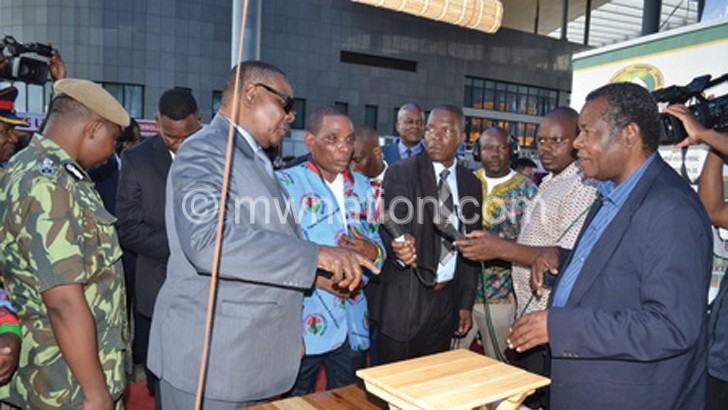Two years on, buy Malawi strategy falters
Two years after President Peter Mutharika launched the Buy Malawi Strategy (BMS), local small businesses say they are yet to register gains.
In an interview on Tuesday, Malawi Chamber for Small and Medium Enterprises executive secretary James Chiutsi said while BMS—which seeks to stimulate local production and growth by inspiring consumers to embrace locally-produced goods and services—had given the small and medium enterprises (SMEs) hope, there is need to change the approach if they are to accrue gains.

He said: “The approach needs to be ratcheted up to make it a real campaign. We expect the country to be bombarded with lots of noise on this so that people get to subconsciously start buying Malawian. We expect industries to continuously being empowered on how to be replacing imports stage by stage.
“The BMS has given the small and medium enterprises massive hope, because we know that a market for our goods and services is now available.”
Mutharika launched the BMS on March 18 2016 in Lilongwe to build competitiveness of enterprises, leading to greater economic growth and increased welfare for all Malawian citizens.
Government developed the BMS to reduce the ballooning import bill and close the country’s wide trade deficit in the short to medium-term.
Figures from the National Statistical Office (NSO) show that the country’s trade deficit has been running at roughly K300 billion, on average, over a seven-year period, which is about eight percent of gross domestic production (GDP).
Malawi’s trade pattern reveals a widening gap in trade deficit and limited diversification, with figures showing that between 2009 and 2016, export and imports increased by 159 percent and 245 percent, respectively, according to NSO.
BMS was, therefore, set up to enhance competitiveness of local firms to stimulate local production and promote industrialisation and close the widening trade gap.
In an interview, vice- chairperson of BMS steering committee Mike Mlombwa said they have been working on widening the campaign’s scope.
“We have been working on ways of increasing our reach some of which have been to engage shopping malls and sensitise people to the importance of producing goods of quality standards which should also be able to compete on the international market.
“We will also be registering members so that as a committee, we are able to mobilise money and ensure that everyone participates. Otherwise, we have been working in the background, including conducting some tours to learn from our counterparts in the region so that when we fully roll out, we are able to meet the expectation of Malawians and compete equally on the market,” he said.
Economics professor at University of Malawi’s Chancellor College, Ben Kaluwa, earlier called for aggressiveness to ensure that the country’s products compete with imported goods.
“For Malawian products to be competitive on the local market, we need to reduce cost of production, which is currently high. We need to be competitive, especially now that we have no import controls,” he said.
Wiskes Nkombezi, spokesperson for the Ministry of Industry, Trade and Tourism, which is the secretariat for the BMS, said the strategy needs full support of the private sector to ensure that it succeeds. n





